‘The Most Scrutinized Volunteers’: The Making of the Modern First Lady
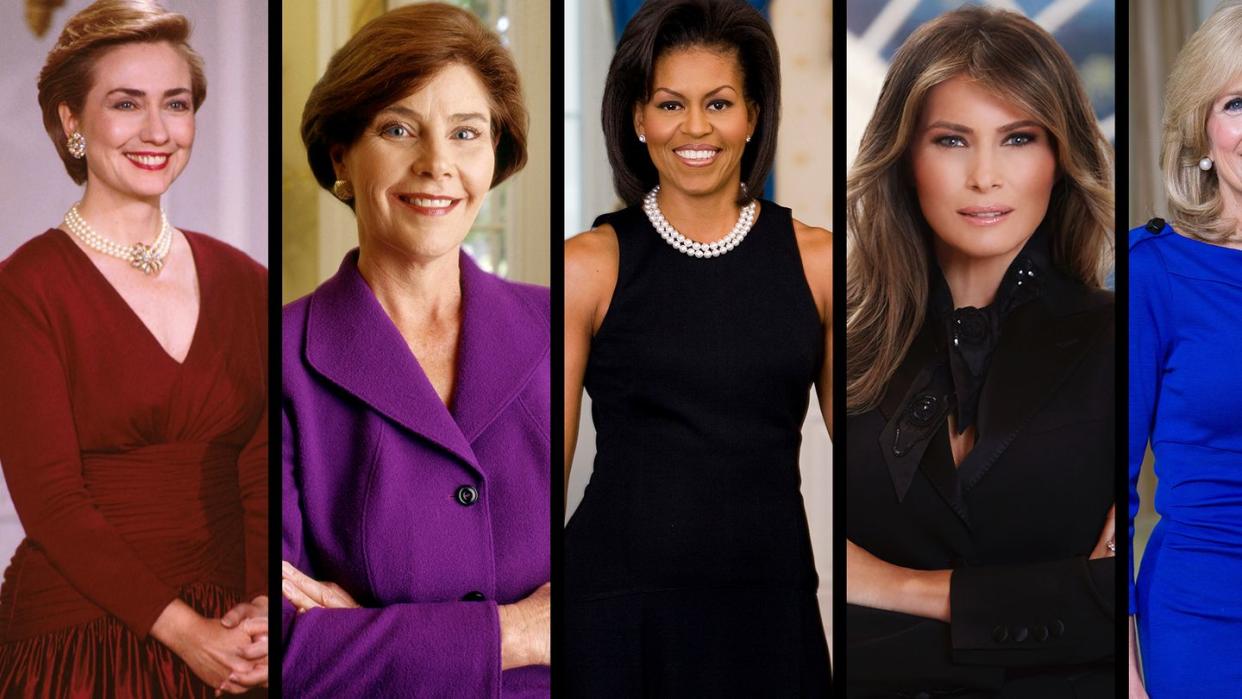
- Oops!Something went wrong.Please try again later.
- Oops!Something went wrong.Please try again later.
- Oops!Something went wrong.Please try again later.
- Oops!Something went wrong.Please try again later.
- Oops!Something went wrong.Please try again later.
"Hearst Magazines and Yahoo may earn commission or revenue on some items through these links."
Being a first lady is… complicated. New York Times White House correspondent Katie Rogers, author of American Woman: The Transformation of the Modern First Lady, calls the women who have served in the role “the most scrutinized volunteers in American politics.”
The causes they choose to embrace, what they wear, and how they perform publicly as a wife and mother are all dissected. Their freedoms: gone. Forget ever driving a car again; even opening a window in the White House to get some fresh air requires the Secret Service to clear the park below. First ladies have a host of responsibilities, both unofficial and required, and yet, they are not paid.
Of course, the role also comes with incredible power and privilege. First ladies are often more beloved than their spouses, trotted out to give nice speeches and rally voters, and they have an opportunity, should they choose, to bring a lot of attention to issues they care about.
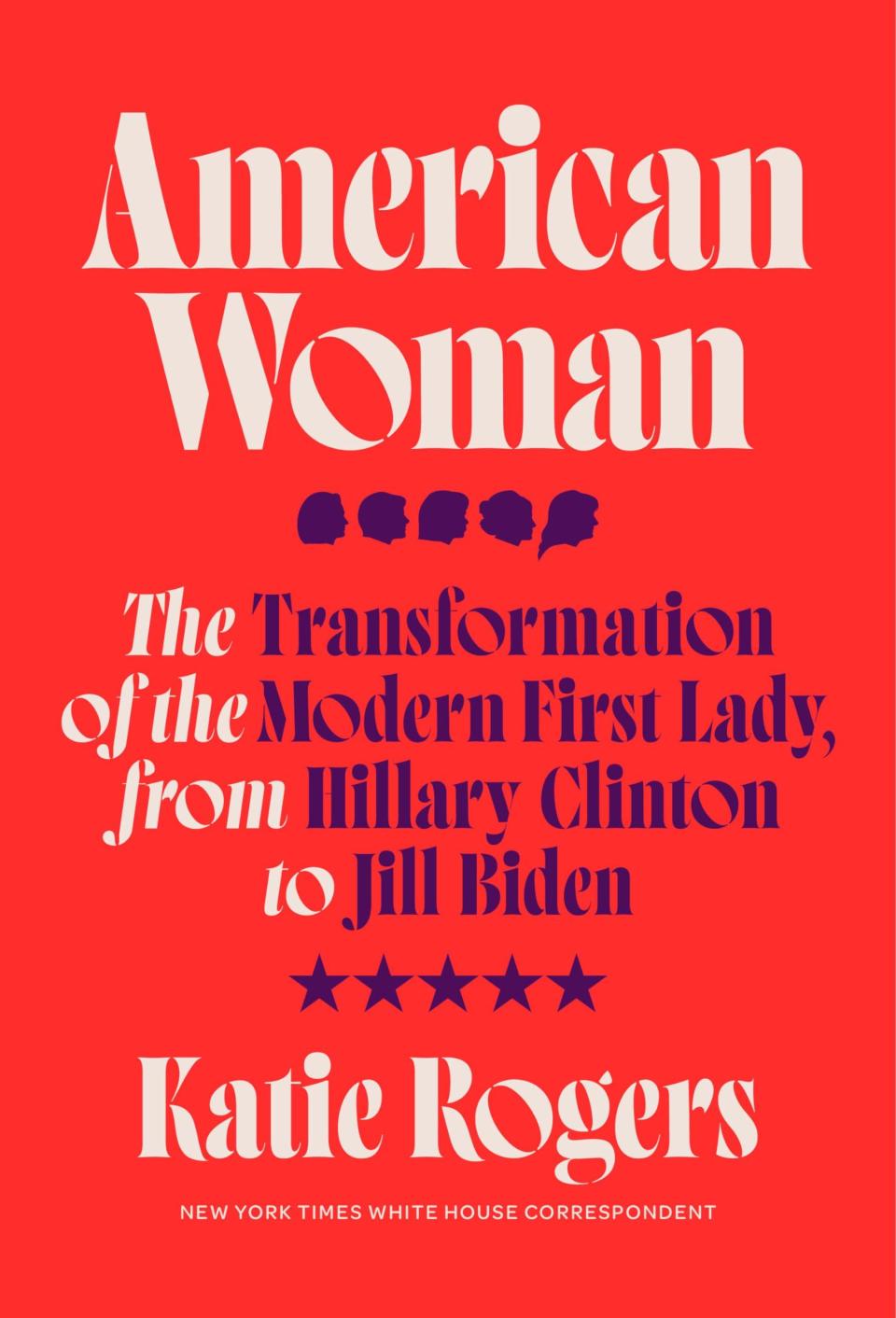
American Woman: The Transformation of the Modern First Lady, from Hillary Clinton to Jill Biden
amazon.com
$30.00
Rogers digs into all of the above in her book, out today, which goes deep on Dr. Jill Biden’s story as it charts the evolution of the modern first lady, from Hillary Clinton to present day in themed chapters (“ambition,” “tradition,” “expectation,” and “reluctance”—I’ll let you guess who is who). Here, Rogers discusses what the public wants from first ladies, the messages they send through their fashion choices, and the costs to their freedoms and families.
Why did you want to write about first ladies? Is there something especially fascinating to you about the role?
I went to college in Chicago and did some freelance work for my school paper. One of my assignments was to write about a museum exhibit that was centered around Jacqueline Kennedy’s fashion choices. I remember it very vividly because, next to each dress, there was a story of how the first lady had used her image to further American diplomacy at a time when the world was changing. Her husband was so young; they were a young, modern couple in the White House. I don’t remember what I wrote, and that’s been lost to the internet, but I do remember thinking, that was power. Jacqueline Kennedy was a woman who understood how the role could be used to further the message the Kennedys were sending—that this is a new America, it’s a new generation, and this is a modern approach to governing. My interest in writing this book really started with that.
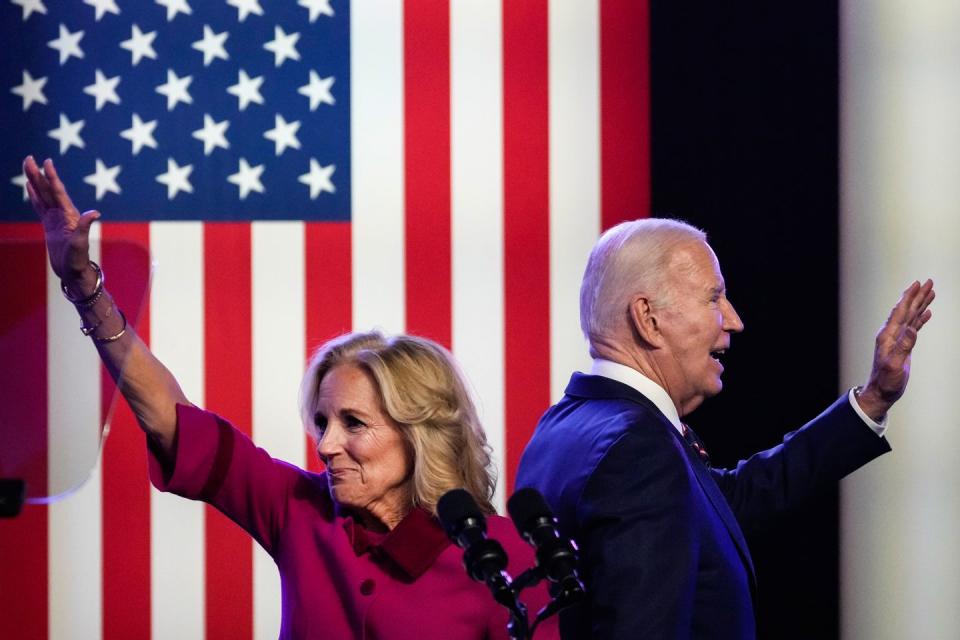
And I am interested in gender and power—I always have been. I think first ladies really embody that tension, in terms of being these women who take on our ideas of what womanhood can mean, and our expectations of what motherhood should mean. They reflect this kaleidoscope of American womanhood back onto us, and we have thoughts about that.
Also this is my sixth year on the White House beat at The New York Times, and the more I cover the East Wing [the first lady’s domain], the more I understand the president and the family at the center of power.
Speaking of fashion, I like that in the book you write, essentially, yes, we have to talk about their fashion, because it matters. These women use fashion strategically, so public fascination with what they wear is not inherently a bad thing or frivolous.
I hate it when people say that fashion doesn’t matter. There are first ladies, by the way, who really want to telegraph that it doesn’t matter. Jill Biden, actually, is somebody whose aides really push back on questions about what she’s wearing or commentary on it. I don’t exactly know the reason, but if I were to put forth a theory, it’s that they want her to be seen as serious and policy focused, and there are more substantive things at play, which is arguably true, but the public sees the surface of these women. They understand what they see in photos, what they see in videos, and now, what they see in memes. The people who see this media, they understand that they’re being delivered a message by these women through what they’re wearing.
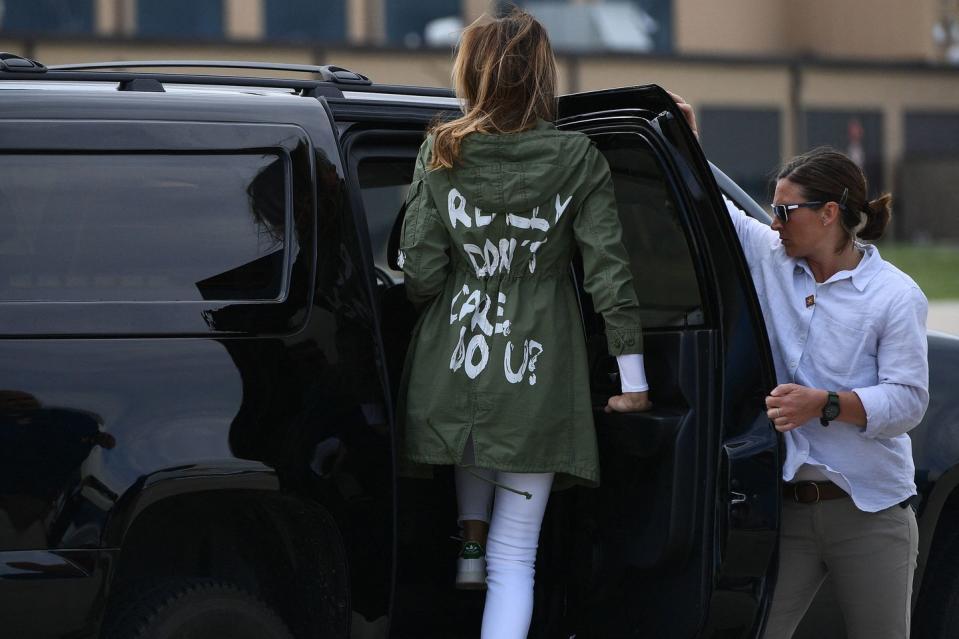
Melania Trump was one of the more overt messengers with what she wore. She literally had words on her back at one point that incensed many people in this country. First ladies understand the power of visual mediums just by virtue of being in the public eye and by being the subject of so much commentary. It is a natural inclination for them to have a conversation with the public through what they wear, and it matters. It reflects their moods; it reflects how they’re feeling. Sometimes it doesn’t mean anything at all, but I think fashion can be one more way for them to have a conversation with the public about their internal lives, and sometimes about their husband’s administration.
As I read your book, I was struck by just how much we expect of first ladies. And yet, we don’t pay them.
The first lady is the most scrutinized volunteer in American politics. It is an anachronistic thing to look at somebody with so much responsibility and then expect them to do things for free. It’s the last role I can think of in American politics that someone is doing out of the goodness of their heart. It’s a strange holdover from a time that is rapidly fading. Today, our first lady has a day job. She has a career where she gets paid, and she had to fight for that, and that is important to her identity. She doesn’t view the first lady job, interestingly enough, as a job. She calls it just another identity she has.
In your chapter on ambition, you write about how Hillary Clinton is the first and only first lady we’ve seen who really dug in deep on policy. She almost got a huge health care law passed. Yet she has more recently said she regrets that work because, in hindsight, she thinks the law might have passed if she had not been the one leading on it. Is the public just more comfortable seeing first ladies roll out Christmas decorations than policy?
Some of that was specific to who Hillary Clinton was and is. She was an attorney, who had ambitions for herself, and her husband respected her contributions and her intellect to the point where he said, “You’re going to get two politicians for the price of one.” The Clintons, I think to their detriment maybe, thought the American public was co-signing this idea that the two of them would co-lead or co-legislate, when the facts on the ground were very different. She learned really quickly that there were limits to what the public wanted from her.
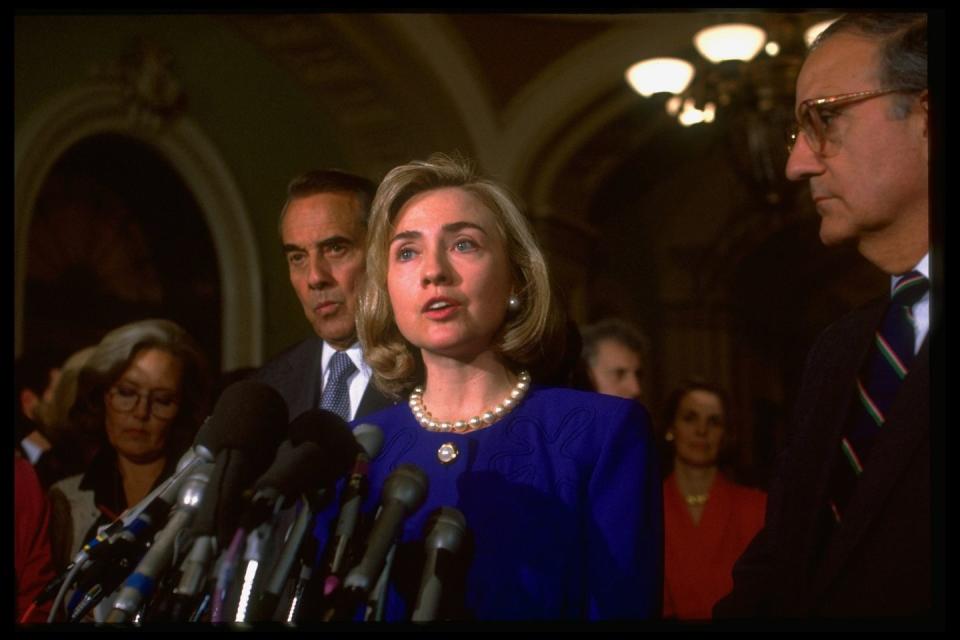
Ultimately her work established a third rail, because they moved so quickly on such a huge legislative initiative that she suffered for it. She suffered scar tissue, and as the book points out, she backed into these other, more gendered issues—literally gender rights—after that so she would not draw organized opposition. And I think that women who served in the role after her knew the limits.
Now that Dr. Jill Biden has broken the barrier and kept her day job while serving as first lady, do you think we’ll see other women do the same in the future?
All of these women have made it easier on the people who have come after them to fulfill this role. Whether it’s a woman, or a man, who comes along down the line, they will have that example of a first lady making it work. There is certainly a blueprint now to letting—not letting—but somebody demanding, really, to hang onto that identity, and that is a very important and revolutionary idea for a role that is so steeped in guardrails.
Some first ladies have embraced platforms and championed certain issues; others have not. Everyone has handled it a bit differently. How much does having a platform matter and impact their success in the role?
A lot of the expectation around platforms has been created by the press. Every incoming first lady gets a lot of questions about, “What are you doing? What’s your portfolio? What are you going to do with it?” Those are natural questions, but also, it creates a false sense of requirement for these first ladies.
I think Jill Biden is demonstrating that you can still be an effective first lady, an engaged first lady, who delivers White House messaging to the American people, without having a centralized topic that she focuses on. She’s gotten some questions from historians and people who understand the role from a historical perspective, though. There’s this whole world of people who understand the role deeply. They wonder if she could use her influence to go to the Hill and lobby for free community college, because she did say she was going to work on that when she came into office.
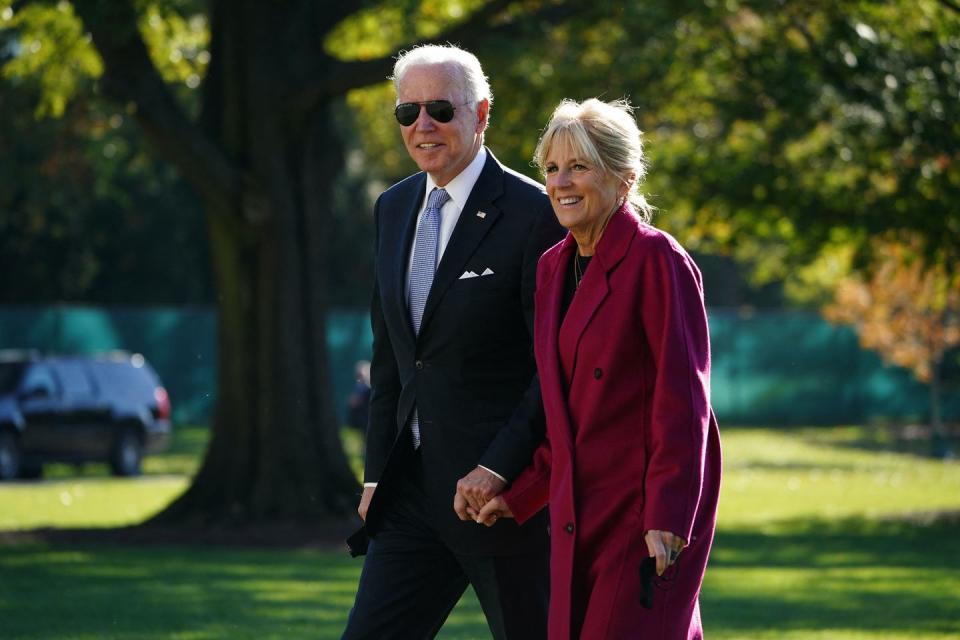
But Jill Biden was a hugely effective messenger for the coronavirus vaccine, which I think has been forgotten about in the past couple of years. She was the person who was holding people’s hands when they were getting vaccine shots, and to be fair to her, that took up a lot of the administration’s first year. In a lot of ways, she is a first responder for a lot of the things the White House needs to get done. Again, our culture is changing so rapidly that everything that touches the White House becomes a five-alarm fire that needs several principals to respond to, and she’s a fully fledged messenger for her husband.
How is it first ladies often maintain higher popularity ratings than their husbands?
This is maybe a gendered view, but a lot of times, they’re considered less divisive. Especially right now, the way our politics are. What’s interesting about Jill Biden is that a third of the country likes her, a third of the country disapproves, and a third of the country has never heard of her, which is an unusual mix of polling for a first lady. Her polling is a little bit more diffused than somebody like Melania Trump, who was definitely the more popular spouse for much of the presidency, to her husband’s chagrin. I think that the expectations for them are that they’re doing no harm, that they mean the best, and that goes back to the volunteer role. If you’re not being paid, you must be doing this out of the goodness of your heart, therefore, you’re not a politician.
I love that you included a chapter on second gentleman Doug Emhoff, Vice President Kamala Harris’s husband. It seemed like you did that to show that, when the norms are applied to a man, the sexism and silliness of the role is more glaring.
It is more glaring, especially when you have the second gentleman reacting to them and being pretty surprised. Even things like, in the vice president’s residence, the vice president is the principal, so the aides in that residence are there to serve the VP. That means the VP’s side of the living area gets cleaned, but not the spouse’s. It’s a very secondary treatment. Having a man in that role highlights what women have been dealing with for decades in that role.
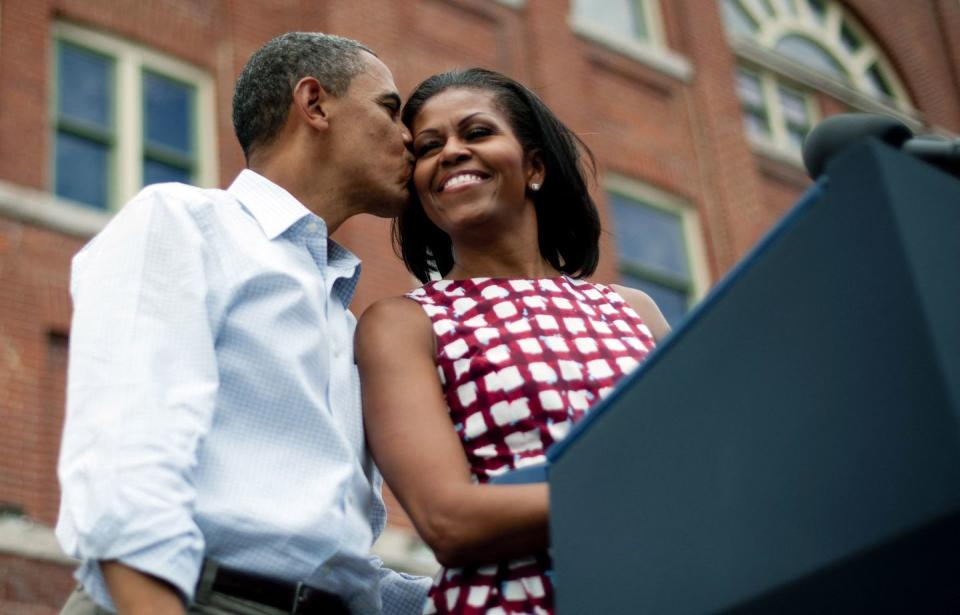
You say reluctant first ladies, like Michelle Obama, Melania Trump, and Jill Biden, are now the rule, not the exception. Why is that? The scrutiny?
It’s the scrutiny, but also it’s the security. The level of security required for the president and his family means that Jill Biden will never get to drive a car again by herself. She’ll never get to go on a simple jaunt to Target. You lose a lot of the very simple freedoms that the rest of us get to have. It can be incredibly isolating. People as far back as Martha Washington have commented on it. You’re ensconced in your bubble, and you’re watching the world go by. I think that’s also another thing that’s important for Jill Biden—that she gets to go out into the country and actually be an educator, and talk to people who are not just assembled for a campaign event.
And yes, there’s the scrutiny element of it. Who wants to walk into a role where half the country has their thoughts about you baked in, and they’re not going to change? For people like Michelle Obama, there was that idea that she would lose those freedoms, and also, she’d be raising two young girls in this fishbowl. It’s a lot to try to protect against, to try to raise two well-adjusted children. So it’s all of it: scrutiny, security, and family.
Don’t get me wrong, it’s obviously a life of immense privilege, but it’s also a singular one that comes with a lot of its own complications, fearing for your family’s life and well-being being the prime one. Once you enter this race, once you win it, once you grab the brass ring, or whatever the term is—it comes at a cost.
This interview has been edited and condensed for clarity.
You Might Also Like

